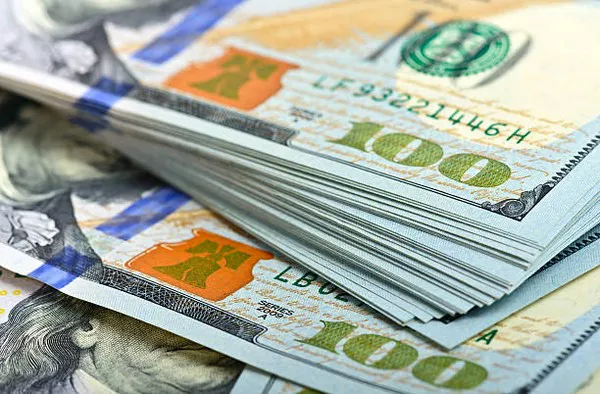Metals markets are giving back some of their recent gains as hopes of a rate cut fade.
Minutes from the Federal Reserve’s latest policy meeting on Wednesday showed central bankers were frustrated by the lack of progress on inflation. The Fed was forced to abandon plans to ease monetary policy several times throughout the year after official inflation data came in higher than expected for several months.
Comments from Fed policymakers have been widely interpreted as hawkish, with some policymakers even suggesting a rate hike may be needed.
It’s unclear what the Fed will do next or when. But what is certain is that the Fed is unreliable in its inflation forecasts.
Federal Reserve Chairman Jerome Powell failed to foresee the inflationary problems that would arise following the massive fiscal and monetary stimulus in response to the coronavirus pandemic. Then, following a rapid rise in consumer prices, he falsely claimed that high inflation was a temporary blip.
Fed Chairman Jerome Powell acted too late in raising interest rates. When inflation finally started to fall last year, he prematurely celebrated victory and predicted that inflation would continue to fall after the Fed stopped raising interest rates.
But this year the consumer price index began to slowly pick up, making it impossible for the Federal Reserve’s own policy mechanism to cut interest rates. As a result, Fed Chairman Jerome Powell has launched a bizarre reimagining of the Fed’s longstanding 2% inflation target, declaring that the Fed can achieve it even if inflation remains above 2%.
Now he has essentially admitted that he has no idea where inflation will go in the coming months or what he will do to combat it.
Of course, in recent weeks, the gold and silver markets have priced in a lot of accumulated inflation, which is just another way of saying currency debasement. Gold hit an all-time high in terms of fiat Fed notes, but retreated in this week’s trading.
Separately, the U.S. House of Representatives narrowly passed a bill this week banning the Federal Reserve from issuing central bank digital currencies. The bill, called the CBDC Counter-Surveillance State Act, is currently before the Senate, but its fate is unclear.
Democrats control the Senate. Only three Democrats in the House voted for the bill.
Many politicians clearly like the idea of one day replacing paper money and physical coins with a digital dollar.
The bill, if enacted, would allow the IRS to track nearly every transaction throughout the economy. Of course, this generates more tax revenue for the government. But it also raises serious privacy concerns and the risk of authorities controlling what people buy using digital wallets.
Any new powers given to central bankers that further deviate the monetary system from a sound currency based on gold and silver will lead to an even greater devaluation of the currency.
For example, a central bank digital currency could allow the Federal Reserve to inject so-called stimulus into the economy more quickly by extending credit to the digital wallets of individuals or institutions it deems valuable.
Bitcoin, the leading privately circulated digital token, has the advantage of a limited supply. However, while there is a limit to the number of Bitcoins that can be mined, scarcity alone does not guarantee that Bitcoin will retain value over time.
Since Bitcoin has no backing and no utility outside of its digital ecosystem, what its purchasing power will be in a few years or decades is purely an open question.
Indeed, Bitcoin’s rise is so rapid that no other currency in the financial world can match it. This has sparked outrage among many in the government, including some politicians and bureaucrats who dream of implementing a central bank digital currency. Congressman Brad Sherman is one of them, pushing for a total ban on Bitcoin.
If people can’t legally trade Bitcoin, or if Bitcoin falls out of favor for some reason, then there may not be anything to support it having any value. In contrast, physical gold and silver will always have value, even if no one chooses to recognize or hold them as currency in the future. They have practical uses for industry, jewelers, craftsmen, etc.
Moreover, from the analysis of hundreds of years of history, Bitcoin has a stronger ability to maintain value than any other form of currency. Could Bitcoin be the only exception, could it be what is truly different this time around, becoming the “new gold” as its advocates believe?
Investors can speculate on this happening if they wish. But in case that doesn’t happen, it’s best to at least hold on to some hard currency in the form of physical gold bars.


